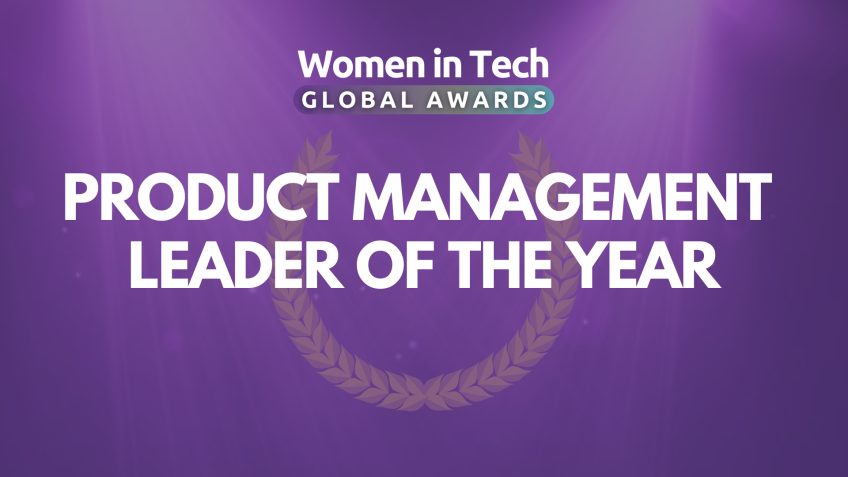Women Make Great Product Managers
Krithika Manikavasagam
Sr.Manager II Product Management (MFC Product Leader)Reviews
What Makes a Woman a Great Product Manager
In my role as a Senior Product Manager at Walmart Tech, I have combined my engineering background with my product management experience to direct a market fulfillment center product for the brand. In this journey, I have discovered the unique traits that women bring to the role of a Product Manager.
Product Management - A Birth and Growth Process
Creating and managing a product is akin to raising a child. Just as a mother doesn't simply birth a child and leave it to fend for itself, a product manager doesn't merely launch a product and wash their hands of it.
In the same breath, a good product manager nurtures a product, nursing it through various stages of discovery, development, introduction, growth, maturity, and eventually saturation. Similarly, a mother guides a child through stages of growth until they become a fully-grown individual.
This is my belief and practice. I treat every problem or product as my own offspring, building it, nurturing it to maturity while taking full responsibility for the failures along the way, and graciously distributing the success.
Product Managers Own the Success and the Failures
Whether it's celebrating your child's accomplishments - or the success of your product, the feeling of fulfillment is the same. But just as a mother won't blame her child if they fail or err, a product manager should own up to any product failures.
From my experience, owning a product's failures is thankfully a trait inherent in most product managers – male or female. But what sets us apart as women is our ability to follow through. Not just handing off the product after delivery (like handing off a child for someone else to raise).
Time to Let Go
As every product lifecycle eventually comes to an end, there comes the time to let go. Despite our intricate involvement with the product's journey, we must have the ability to let it go in order for it to thrive by itself. This mirrors the mothering instinct of knowing when to cut the proverbial apron strings and let the child make their way in the world.
Skills Translated Across Roles
However, what's most remarkable about managing a product is how uncannily it mimics key skills we possess as women and mothers. Among these are:
- Controlling emotions
- Passion
- Influencing intelligence
- Multitasking
- Problem-solving
- Compassion
- Collaboration
- Leadership
- Negotiation skills
These are skills that, translated to the product lifecycle, make a considerable difference in defining the vision of the product.
In Conclusion
As a woman, a product manager, and a mother, it is enlightening and empowering to realize that the skills that we possess and use daily make us excellent at our job. Through our experiences, we learn to juggle multiple roles, manage emotions, and become effective problem solvers.
The final note I want to leave you with is this: being a female product manager is a powerful asset. The skills, traits, and perspectives we bring into our professional environments make a significant difference in the success of the products we manage. We have the capability to nurture, guide, and direct products from conception to success, much in the same way we raise our children.
Video Transcription
A product manager, senior product manager in Walmart Tech. And I kind of comes from the engineering background from the past and moved into product manager and successfully being here in Walmart now. And I run a market fulfillment center product manager in Walmart today here.
I'm talking about what makes um a great product manager. Oh, that said, I'm not doing any gender specific here, but I'm just trying to say that we all believe a product manager, a male or a female to be a component, they must be smart, creative or persistent. I don't see any gender aspect here here in this one. The only thing I'm talking about is what distinguished the woman as a great product manager. Think about what's the product life cycle? A development and disco. I won't say development, directly, discovery and development, introduction, growth, maturity, saturation and kind of at some point. Yes, we have to let it go kind of ages matured. Yes, let it go. So if you really look at it, it's a throughout the process, you just not just start off the day, build the product, just drop the ball and go. It's a, it's a process of building it and watching that grow and getting it matured, doing multiple analysis. What works for it. What doesnt work for it? If you look at the same growth, what it for a kids? It's a similar thing as a baby before even baby, it's an infant. It's a discovery and an infant stage, it grows together. If you really look at the chart, it's almost same. So from this thing, what I'm comparison what I'm trying to prove, tell us from my child.
From the time I started as a thinking about the problem statement or a product manager, I treat every single problem or any product I build is my kind of a baby. I am trying to build it and I'm going to make that as a mature person and I'm going to own all the failures as well as I will distribute the success rate. So that's where I'm kind of trying to say every woman bled as that mother capability. Eventually we build a product as our baby. It, it's, it's the kind of quote I wanted to give. It's a 10 month process. We think making a baby. But it's a similar, if you compare it, it's, it's a launching AM VP product out of it. As a mother, we celebrate the kids' success and their achievement and everyone in surround we own that victory and we do contribute the victory. Similarly, when the product gets success, it's the same process we own not just, won't we contribute the victory? It's when it comes to the failures. If it's any failures, we are not going to blame. Oh, because of that, we are not going to do a scapegoat game here. We own the failures. Yes, we own it. Or we are accommodated. Like similarly, if you really look at the product also, it's the same thing. We own the failures. That's, that's exactly why I wanted to try to reiterate here. And after delivering baby, we're not just going to hand over to somebody. Oh, we're done with the baby.
We delivered the baby, you take care of it. We're going to monitor the baby progress, we're going to teach them, we're going to monitor what, what is the right thing to do and worst thing to do, right. It's, it's a kind of a same thing. After delivering the MVP product, we are also going to look at the same thing a how the product is going to be there, how it's going to get mature? Are we going in the right direction or we need to pull back and do something? How to get that better? It's the same similar things. I'm looking at it. It's the same for all the product manager. We do the product. If we launch the product, we have to leave it to someone to take care it. That won't be a success. We, we just need to deploy to the market. We need to do the analysis measure the success, watch the capabilities and how innovatively we are getting that to mature product as a mother or a product manager at some point. What is it? This is a big, big thing. I want to quote it. We have to let go. Yes, we were sure we did it and we are moving away, let go of on their way too. So that's, that's one of the key thing which it's always in the, in our skills and study shows all that human professionals in various fields have a skilled to be a great professional product manager. I just wanted to put some couple of notation here.
How we control emotions, the passion influencing intelligence, multitasking, problem solving compassion and how we collaborate and leading everyone in the family and negotiator. If as a mother, if you think, yes, it suits very well. As a mom, you do that every day basis or as a woman, you do that every basis. If you look at in the product life cycle, the same thing we have to have the passion. What are, what's the drive of passion? What's our vision for our passion? How we are influencing every single person and bringing them together and what's the intelligent we are using and our, we, yes, at some point, yes, we do, we do multitasking of getting things together, doing multiple things together. And how are we solving the problem? It's not solving problem by yourself? That's not a product manager. We are have to collaborate. We have to bring all the fam like our as a moment, bringing the family together. We are also are we bringing all the team together? How are we collaborating at some time? You have to lead. Yes, we have to lead. Not at some time. Every time, I will say we have to lead that and negotiate a this cannot be done. What can be done, how it can be done? What's a negotiator? So if you really look at all these skills as a woman, we actually as it in our humanity itself, it makes our product manager as a great success, product manager.
That's with all these skills, we cultivate them ourselves or as a great product manager, I just want to put a note at the end as a woman, as a product manager or a mother can make a considerable difference, defining the vision of the product.







No comments so far – be the first to share your thoughts!